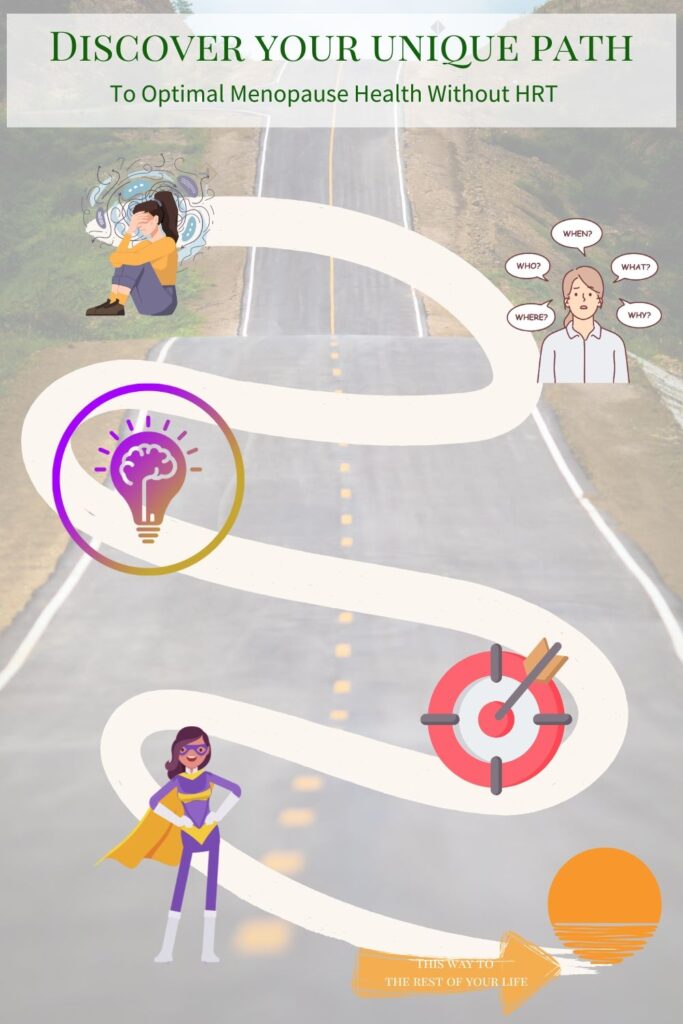
Honour Your Hunger – Intuitive Eating for Menopause.
Following up on the first post in the Intuitive Eating During Menopause Series, which you can read HERE, let’s explore the impact that restrictive diets can have on your body and why honouring your hunger is essential to nourishing yourself during menopause and beyond.
Many common menopause symptoms stem from a lack of vital nutrients.
Your body craves adequate protein, healthy fats, and essential micronutrients, all of which play critical roles in building lean muscle, producing hormones and neurotransmitters, supporting gut health, and even promoting restful sleep.
By learning to trust and respond to your body’s hunger, you can begin to nourish yourself in a way that supports long-term well-being truly.
Let’s dive in!
How many diets have you tried in your lifetime?
Last week, I touched on the diet mentality, but let’s take a closer look.
Think about it, which diets have you tried;
- Weight Watchers
- Slimming World
- Rosemary Conley
- Slimfast
- The Cambridge Diet
- The Grapefruit Diet
- The Cabbage Soup Diet
- Noom… the list could go on forever!
If you’re anything like me, you’ve probably lost track of the number of low-calorie diet programs you’ve experimented with over the years, most likely fueled by diet culture in the media.
Weekend papers and magazines with catchy headlines with before and after pictures and ‘miracle’ diet plans continuously tempt us to chase an unrealistic standard, maybe even our prepubescent weight!
It’s frustrating to look back, especially now that I understand the body better and see the long-term harm these diets can cause.
That frustration isn’t just at diet culture, but at myself, for not realising sooner.
My Diet History
In my 20s, I could go on a “diet” from Monday to Thursday to fit into an outfit for the weekend, but after having my children, although I returned to my pre-pregnancy weight, my body naturally changed shape.
After two nearly 10-pound babies, my stomach hasn’t quite been the same and I’m okay with that, as it’s part of my body’s story.
However, I felt the pressure to “bounce back.”
Over the years, I’ve tried numerous diets to shape my body to look its “best” (or, rather, what society considers ideal).
While some diets initially seemed effective, I was manipulating my food choices to control my body rather than nourish it so that it could thrive and reach its optimal health and ideal weight.
On one particular diet I followed I swapped the milk allowance for wine, it was the same amount of calories, I lost weight but didn’t consider the nourishment my body missed out on.
Following what I thought was a lack of willpower to stick to these diets, my eating would return to normal, which in hindsight was never poor, and the results never lasted, I also ended up gaining back even more weight than I lost.
This cycle is a classic example of the Dieter’s Dilemma, which I discussed last week, where short-term fixes don’t support long-term health or body confidence.
Diet Results Are Not Meant To Last
If you’ve ever lost weight on a restrictive diet only to regain it, know that it’s not your fault.
If diets worked long-term, we wouldn’t see people attending groups like Slimming World for years on end, repeating the same cycle.
In the beginning, dieting can feel deceptively easy, pounds seem to “melt off” but much of this initial loss is water weight; for every gram of carbo-‘hydrate’ stored, the body holds onto 3-4 grams of water.
Prolonged restriction signals the body to go into “famine mode,” leading to hormonal imbalances and a slower metabolism.
When you eventually return to more typical eating habits, your body’s reduced metabolic rate struggles to process the additional energy, leading to weight regain and even if you could sustain the diet forever, it wouldn’t provide adequate nutrition, you’d end up needing to eat less and less just to maintain weight, which isn’t sustainable—or healthy.
Over time, willpower alone can’t override your body’s biological hunger cues.
Your body is driven by hormones, not calorie counts, and it will release hunger hormones to prompt you to eat.
Your body doesn’t know you’re intentionally restricting food or that food is always available, it’s simply trying to survive.
This is why diet after diet becomes harder, and each time, the weight loss slows down and feels more frustrating.
It’s not a lack of willpower—the problem is that dieting ignores your body’s natural needs and rhythms.
Why Diets Are Harmful to Body and Mind
Every time you start a diet, it takes a toll on both your physical and mental health.
Restrictive diets raise stress levels and deprive your body of essential nutrients.
They also create a sense of deprivation, which can lead to intense cravings.
Hunger is a primal instinct, and when our bodies sense a lack of nutrients, they drive us to seek out what we’re missing—cue the cravings!
We all have an innate ability to be an intuitive eater, but years of dieting can mask this skill.
Think of a baby drinking milk; once they’ve had enough, they simply stop, no one can make them take more. Or picture a small child eating lunch, they instinctively eat what their body wants, often leaving food behind, even something like half a packet of crisps. Imagine that!
I will be exploring all 10 principles of Intuitive Eating (created by Evelyn Tribole and Elyse Resch), throughout this blog series.
These principles flow naturally into one another.
Some may feel easy, while others may require patience and practice.
Remember, Intuitive Eating is a learning journey, not a strict set of rules to get right or wrong. Let go of control, and treat it as an opportunity to rediscover what your body truly needs.
The Truth About Starvation Diets
If you need more evidence about the harm starvation diets cause let’s look at some lessons from the Minnesota Starvation Experiment.
The Minnesota Starvation Experiment, conducted during WWII, highlighted the devastating effects of restrictive diets on both physical and mental health.
Volunteers in this study consumed half of their regular calories for six months, resulting in severe weight loss, muscle wasting, fatigue, and even swelling from water retention.
However, the psychological toll was just as extreme.
Participants became obsessed with food, experienced intense mood swings, depression, anxiety, and loss of interest in social activities.
This study shows how prolonged calorie restriction can harm the body and mind, leading to food preoccupation and even disordered eating behaviours, effects that lasted long after the experiment ended.
When we restrict food intake, our bodies don’t get the nutrients they need to thrive, which is especially harmful as we prepare for the menopause transition.
Our bodies need balanced nutrition to support hormones, protect muscle mass, and maintain energy levels.
Rather than restrictive diets, learning to honour your hunger and nourish your body is essential for long-term health, especially through menopause.
Breaking Free from the Diet Mentality
If you catch yourself thinking, “I shouldn’t eat yet—it’s not time,” or “I didn’t work out today, so I don’t deserve to eat,” or constantly counting calories, macros, or points, then you’re likely following diet culture’s “rules” rather than honouring your body’s natural hunger signals and needs.
Every cell in your body senses when it’s not getting enough energy, but these cells don’t understand modern conveniences like drive-throughs or food delivery apps.
Your body only knows hunger as a primal urge to fuel itself.
Do you ever crave sweets or starchy foods when you’re really hungry?
There’s a reason for this!
Your brain, nervous system, and red blood cells depend on carbohydrates for energy.
When you don’t provide enough food, your body responds with cravings to get your attention.
Notice how you never seem to crave a salad when you’re really hungry, it’s usually something dense, like bread, cake or pasta, because that’s the fuel your body urgently needs.
If you continue to restrict food, your body will eventually break down muscle mass for energy, which reduces your metabolism and increases your set point weight (more about that in this post).
Muscle is crucial not only for strength but also for maintaining a metabolism that can process the energy you consume, giving you the stamina and vitality you need for everyday life!
There are many reasons why hunger cues can be overlooked such as stress, being busy, or simply waiting until you’re beyond hungry (also known as “hangry”).
Dieting rules can lead us to ignore these natural signals, resulting in eating past comfortable fullness, which is another reaction of primal hunger and the body trying to survive a perceived food scarcity.
This cycle can make you feel like you lack “willpower” around food.
However the truth is, it’s not a matter of willpower, it’s a matter of tuning back into your natural hunger cues and allowing yourself to nourish your body without food restriction.

What Is The Alternative To Restrictive Diets?
The non-diet approach puts you in charge.
It’s about learning to honour your hunger levels and fullness cues.
Your level of hunger can depend on many things:
- When was the last time you ate?
- What did you eat?
- What was the timing?
- How busy have you been since eating?
- Where are you in your cycle?
The principles of Intuitive Eating aren’t rules they are guidelines which help you tune into your body and what it needs rather than rules which don’t consider your needs at all.
If you are accustomed to chronic dieting, you need to consider that intuitive eating is a process and not a quick fix.
As with anything sustainable, the results are slow but steady.
It can take time to rediscover natural hunger and act on it. The first step is throwing the diet culture food rules out of the window.
You can learn how to understand your internal cues by using a hunger scale of 0-10.
Hunger can be detected in several ways:
- Mood – Emotional hunger, not so happy and easily snappy,
- Energy – sluggish or tired,
- Physical hunger, sensations such as light-headedness or difficulty concentrating.
Listen to your body’s signals. This can be difficult if you have a lack of hunger cues due to years of living out of alignment with your body’s needs but with intention you can learn, try this;
How does your stomach feel?
- Gurgling
- Growling stomach
- empty
- painful
Consider all these aspects then rate your hunger on this hunger fullness scale,
- 0 – famished
- 10 – stuffed
- 5 – neutral
Use this practice to learn how to identify hunger naturally and honour your energy needs
If you rate 5 or 4 you can probably wait to eat, a 2 or below you have waited too long, and you will be over-hungry and at risk of overeating.
The Non-Diet Approach
Being an intuitive eater doesn’t mean you can no longer follow food plans. Planning is important, especially with our busy lives and can provide food freedom.
Each week up until Christmas I am going to be sharing more of the principles of Intuitive Eating and the non-diet approach to menopause health and well-being.
Regaining body trust is so important, especially during menopause, when our biological need for nourishment is at one of its highest.
I am a certified intuitive eating counsellor having completed training in ‘Applying Intuitive Eating Practices and Non-Diet Approaches in Practice’.
You can work with me in several ways from a quick, but powerful, 30-minute Holistic Menopause Diagnostic Call, my 30-day Menopause Solution Hybrid Program right through to my signature 12-week Menopause SHIFT Method and many self-paced programs in between. Learn more and discover your unique pathway to optimal HERE.

